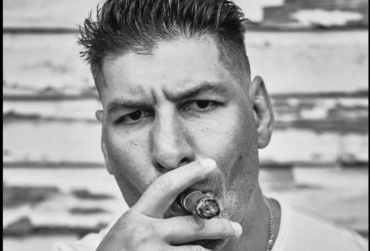
How Greek Jews Celebrate Chanukah: Spoiler Alert, It’s Different There
Rabbi Gabriel Negrin’s family has been in Greece for a very long time – since the 4th century BCE, to be exact. Negrin, who has been the rabbi of Athens since he was 26-years-old, explains that the Jewish community of Greece is called “Romaniot.” “I can trace our family background [directly] to the 11th century.” The Romaniot have their own unique traditions and speak their own Hebrew-Greek language, known as Yavanic or Judeo-Greco, and is the Greek equivalent to Yiddish and Ladino. “Among the Judeo-Greco speakers we don’t have a name for it, it’s just our language.”
The Romaniot are not considered sephardic, although the Athenian community is half-sephardic. “We have our ancient history and then after the destruction of the Temple…most of our traditions are based on the Jerusalem Talmud and not the Babylonian Talmud. We have a lot of traditions that come directly from the Temple. Every day, we count the years since the destruction of the Temple in our morning prayers.” Their Kesubahs are in Hebrew and not in Aramaic; they also include this count. Their minhagim developed during the Byzantine Empire which reflected in them having different liturgical music.
Negrin was 19-years-old when he first met an Ashkenazi Jew, and that was when he first learned the extent of the conflict between Greeks and Jews as in the story of Chanukah. “The conflict was between the Hellenistic Empire of the Assyrians and the Jews…even in ancient times, Greeks were not related to Antiochus. That’s why he was called Ephiphanus. The one who wants to show himself. This is similar the Epimanis – a crazy person.” That doesn’t mean he was Greek, as that the Assyrian Empire even had different borders. “No one gives any Greek identity to Cleopatra [either]…Even in our prayer books, when we add the prayer of Chanukah al hanissim, it doesn’t say the Greek Empire but it says ‘the cruel Syrian Empire.'” While this was an effort to be politically correct in Greece, historically speaking it may be more accurate.
Greek Jewish communities have a longstanding significance to Jewish history. “The Jewish community in Crete used to send goats for the Temple [for use as korbanos]. In fact, recently archeologists in Greece unearthed ancient purchase orders from Israel ordering animals to be brought to the Temple for sacrifice. The Jewish community in Corfu, to the North, created high-quality esrogim.” In fact, archaeologists have found evidence of Greek animal sales with Israel. “Several years ago [they] found a ceramic plate that was actually an order from the Temple to Greek Jews, an order for goats and other goods from Greece to Israel.” Other ancient communities in places like Olympia were strategically placed to further the cause of the Jewish community. There was a trade agreement in place to exchange goods between Greece and Israel during second Temple times. “Many lamps were found with menorahs on them from ancient times, but it is not a custom to light [the menorah] outside the home today.” While there is no evidence of formal yeshivas in Greek history there were always scholars and students. Greeks are raised with Greek philosophy as an important part of their education. “I knew about Philo before I knew about Rambam…”
Kashrus has an interesting history in Greece. “We have the strong opposition of south French rabbis about the kosher wine of Greece and Crete because it was carried by Muslims…It was an economic debate based on a halachic issue.” There has been production of kosher products in Israel from ancient times to today.
“Greek Jews were always a solid and important part of Greek society throughout history. We never had pogroms at the level of Russia. If you see a painting of medieval Europe, you can always see who is a Jew.” Stereotypical looks defined paintings of Jews in this area, but in Byzantine paintings, Jews and non-Jews look the same. “The only way you can see that they are Jews is because it is written at the top of the painting.” The Greek revolution affected the relationship, though now things are more stable. In 2020, the Greek Jewish community’s 100 year anniversary will be celebrated.
In the Holocaust, Greece lost 87% of its population. The percentage was more than 99% in Crete. “Today we are only 5,500 Jews all over Greece. Most of us are centered in Athens, the capital city. We are 3,500 Jews today.” Most are traditional Jews and there isn’t such a big need for kosher food but most eat strictly kosher in their houses. There are several main supermarkets that carry products that are sourceable with a list, although there are only a handful of shomer Shabbos families. “We have kosher shechita in Athens and butcher stores. We have several products and specific factories that produce from yogurt and cheese to bread and pastries.” To find out more, visit the Jewish Community of Athens here.
If you found this content meaningful and want to help further our mission through our Keter, Makom, and Tikun branches, please consider becoming a Change Maker today.







